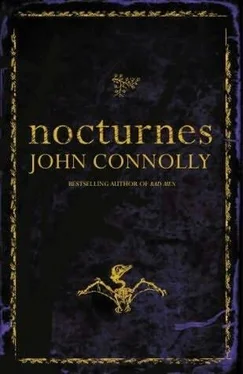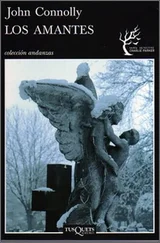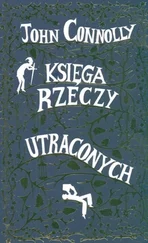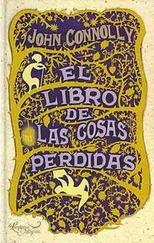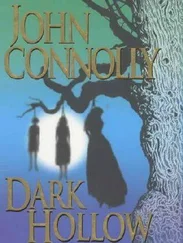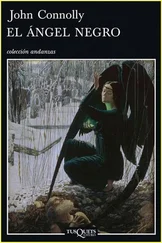A sad lineup of domestic beers stood above the register like deserters waiting for the firing squad, with a single dusty bottle of Zima bringing up the rear, as out of place here as one of the patrons might have been on Castro Street during Gay Mardi Gras. There was a pretty good selection of bourbon, a couple of bottles of brandy, and one bottle of Tia Maria that didn’t appear to have been touched since the Cold War.
I took a seat at the end of the bar nearest the door, two stools away from a man in a lumberjack shirt who kept flicking at the loose fingernail of his middle finger with the end of his thumb. Each time he did so, the nail raised up from the skin, barely held in place at the cuticle. I wondered if it hurt. In another life, I might have been tempted to ask, but I’d learned that a man who doesn’t care much about idly inflicting pain on himself sometimes considers it a pleasant change to inflict pain on somebody else. I figured the nail would come out eventually, and then he could start on another finger. It would never be the same, though. There’s nothing like losing your first nail.
The barman made his way down the counter.
“What can I get you?”
“You got coffee?”
“We got it, but you don’t want to drink it.”
He indicated a pot of something stewing away on a hot plate. It looked as though it might have gone on fire at some point in the past, and was currently considering reigniting just to break the monotony.
“OJ is fine, then.”
He poured my juice into a clean glass and placed it before me.
“I’m looking for Denny Maguire,” I said. “He around?”
“You found him,” said the barman.
I tried to keep the surprise from my face. My guess was that Denny Maguire must be in his thirties by now, but the guy behind the bar looked twenty years older than that. In a way, he was the flip side of Chief Grass. If the chief, like Dorian Gray, had a bad portrait of himself hidden in the attic, then Denny Maguire’s appearance gave some indication of what it might look like.
“My name’s Charlie Parker,” I said, for the third time that day. “I’m a private investigator. You need to see some ID?”
I asked because when you’re in a place like the Desperate Measure, then producing anything that might lead the customers to mistake you for a cop and showing it to the barman was likely to lead to some awkward questions, or worse, for both of you.
“I believe you,” he said. “Why would a man lie about something like that?”
“I could be doing it to gain the esteem and respect of strangers.”
“It’ll take a little more than a piece of card and some attitude to get that here.”
“Maybe I should have shot a bear.”
“Maybe. You want to tell me why a private investigator is asking after me?”
I could see that Fingernail Man had found something to divert his attention from his own decaying fingers, so I suggested to Maguire that maybe we could talk somewhere away from the bar. He agreed, and summoned a woman who was reading a magazine at one of the deuces over by the men’s room.
“I got five more minutes,” she said.
“Bill me,” said Maguire.
The woman shook her head in disgust, killed her cigarette, and made her way slowly to the bar.
“You have to keep them motivated,” I said.
“Motivated? It’s all I can do to keep her moving.”
He made his way along the bar, grabbed a soda from the cooler, and patted the woman on the ass as he went by.
“I’m gonna bill you for that an’ all,” she said.
“Uh-huh,” said Maguire. “You got change of a dollar?”
“Asshole.”
Maguire took a seat across from me, lit up a cigarette, and laid its tip beside the still-smoldering remains of the waitress’s butt.
“So?”
“I’ve been hired by a man named Frank Matheson,” I said.
Maguire gave me nothing.
“You know who Frank Matheson is?” I said.
“I know. What’s it to me?”
“He’s concerned that someone with knowledge of the history of the Grady house may have gotten some ideas from what happened there in the past. He’s afraid that the someone in question may have targeted a child.”
“Like I said, what’s it to me?”
“What happened there took place before my time. I got some of it from the newspapers, a little more from Matheson, a little less from the chief over in Two Mile Lake. I was hoping you could tell me more.”
“Because I was there, you mean?”
“Yes. Because you were there. You were there when John Grady died.”
Maguire waited for a while before answering. He watched the woman moving behind the bar, joshing sourly with one or two of the regulars who had perked up some now that they were being exposed to a little female company. He seemed to take in the grim walls, the faded posters on the walls, the hole that someone had punched in the door of the men’s room.
“You know, I own this place,” he said at last. “Bought it three years ago from a man named Gruber. He was a German Jew. Never could understand why he had a shamrock on the sign. When I asked him, he told me that nobody ever lost money on a bar that looked Irish. Didn’t matter what happened once you got inside. Kind of people who come into a place like this, they’re not too concerned about decor. They want to drink, drink some more, have one for the road, then stagger home and be left to themselves from start to finish. So when Gruber said he was going to retire, I bought it, because it suited my disposition. I like being left to myself. I don’t like people asking about my present or my past. Why do you think I’d make an exception for you?”
Now it was my turn to pause before answering. There was a game being played, and I think Maguire knew it. I had come here in part to find out what he could tell me about the Grady house, because to understand the present you have to understand the past. But I also wanted to take a look at him. He was the only child to have entered the Grady house and survived, and I didn’t like to think about the kinds of scars that experience had left upon him. While those who have been abused in the past, or who have suffered in the way that he had, do not automatically themselves become abusers, it does happen, and it was something that needed to be considered.
“I came here to look into your eyes,” I said.
Maguire met my gaze levelly.
“And what do you see?”
“I know what I don’t see: I don’t see a man who has been transformed by his own pain into the very thing that caused that pain to begin with.”
“You thought I might have been behind whatever is troubling Frank Matheson.”
He said it softly, but without blame or anger.
“I had to consider it.”
He took a long pull on his cigarette, releasing the smoke slowly through his nostrils. Along with the fumes, some of the suspicion seemed to ease from his body.
“What made him hire a private investigator?”
I handed him one of the copies of the photograph, the unknown girl caught in her pose, ready and waiting for the ball to be released, for her chance to strike at it. Maguire picked it up and examined it for a time.
“Do you recognize her?” I asked.
“No. Where did it come from?”
“Matheson found it in the mailbox of the Grady house. He doesn’t know why it was left there. He thought that it might be some kind of tribute to John Grady.”
Maguire was quiet for a long time. I knew that at the end of his silence, he would either stand up and tell me to leave or open up to me. The decision would be his to make, and if I spoke before he reached it I felt certain I would get nothing from him.
“An offering,” said Maguire.
“Perhaps.”
“He used that word, you know, when I was with him. He called the Matheson girl that. He said she was an ‘offering.’ ”
Читать дальше
